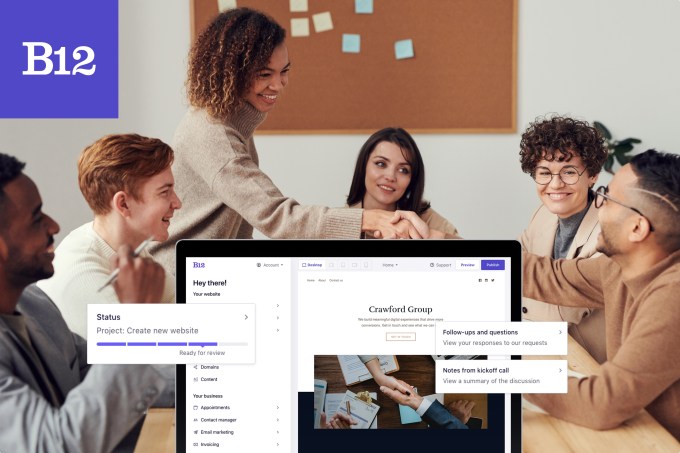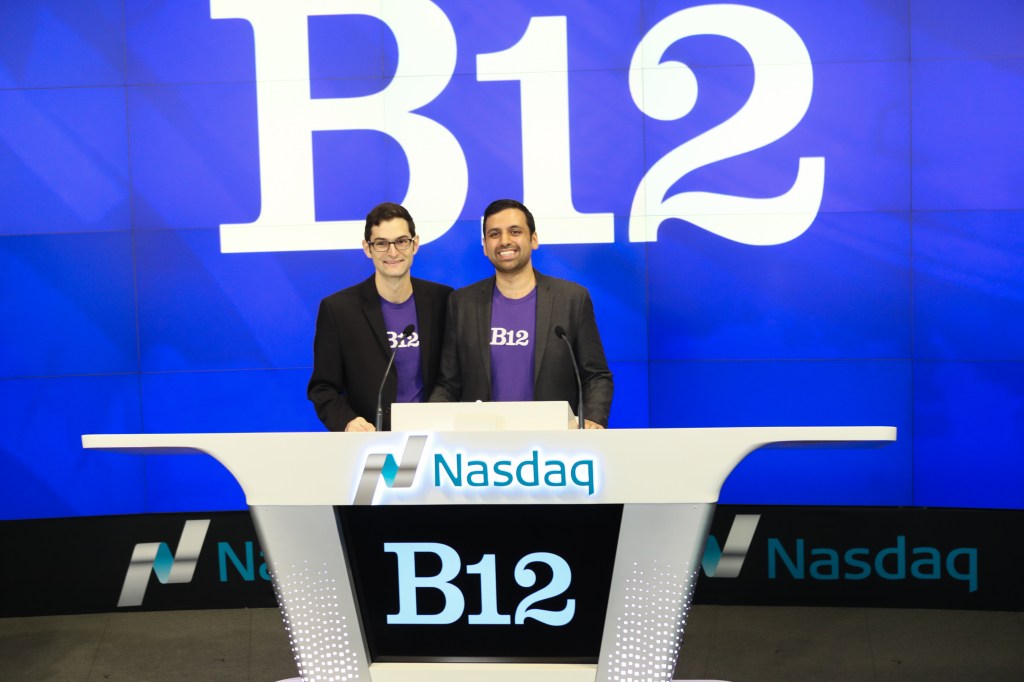When it comes to the digital world, many professional service firms are still working to get caught up — especially the smaller players.
Today, B12, a startup that is focused on helping those smaller professional service organizations such as law and accounting firms or mortgage brokerages more easily accept online payments and build a digital presence in general, announced it has raised $15.7 million in funding led by Tola Capital.
Breyer Capital, General Catalyst, Naval Ravikant and others also put money in the round, which brings B12’s total funding to $28.1 million.
B12 co-founder and CEO Nitesh Banta is a former investor at General Catalyst — having worked at the firm from 2010 to 2015. He teamed up with MIT grad Adam Marcus in 2015 to found B12 with the mission of helping small professional service firms “own their digital identity and customer relationships” and give people a way to buy services online. It does things like help these firms with building a website, effective SEO, email marketing/automation, online scheduling and, of course, online payments and invoicing.
Banta said he was inspired to start the company because his own father was a small business owner.
New York-based B12 markets itself as an “all-in-one solution that helps professional services firms establish, run, and grow their business online.” It claims to get customers set up within 30 days and help them compete against larger online platforms such as LegalZoom, Better and Fiverr. Banta likens B12 to Shopify and Toast helping stores and restaurants, respectively, compete with the likes of Amazon and DoorDash.
“We believe small firms deserve to succeed online,” the executive told TechCrunch. “It’s a trend I’ve seen more broadly and we think professional services is the next category that needs an SMB enabler, and that’s really what we’re trying to do.”

So far more than 150,000 companies have signed up for B12 and the startup has “thousands” of paying customers. Revenue has grown “over 50x” since the company’s 2016 funding. From January to August 2021, monthly payment volume on B12 has increased “15.2x,” according to Banta.
As a SaaS company, B12 makes money by selling its software via a subscription — starting at $29 a month and up to $599, depending on what a customer signs up for.
Over time, B12’s model has evolved as the pandemic accelerated digital everything, including payments.
“For a long time, we’ve really focused on this web presence space and we’re super excited to share with the world this payments feature as being a really unique way for this segment to work with their customers online,” Banta told TechCrunch.
General Catalyst Managing Director Larry Bohn has been a believer in B12 since its early days. The firm first invested in the company in 2016, leading its $12.4 million funding round. He said his firm had a long history with the founding team of B12 (particularly Banta) and believed they “have proven to be effective operators.”
“We also have a lot of experience in this industry, having led investments in Big Commerce and more, and believe that B12 is uniquely positioned to help professional service businesses with their digital transformation,” he wrote via email.
In his view, the company’s model is unique in that it helps professional service businesses grow online by using artificial intelligence “to power their go-to-market model of service,” which Bohn said gives companies “the latest technology, but with a radically easy approach to implementation.”
Aaron Fleishman, partner at Tola Capital, agrees that B12 sets up and activates firms to give their clients “a seamless experience” — from signing contracts with eSignatures to paying online for services.
B12 plans to use the new financing to accelerate growth, do some hiring and continue building out its product suite. In conjunction with announcing its latest raise, the startup is also revealing today a new “Client Engagement” product designed to help professional services firms connect with clients, offer services and automate administrative tasks “so they can sell online from a centralized platform.”































Comment